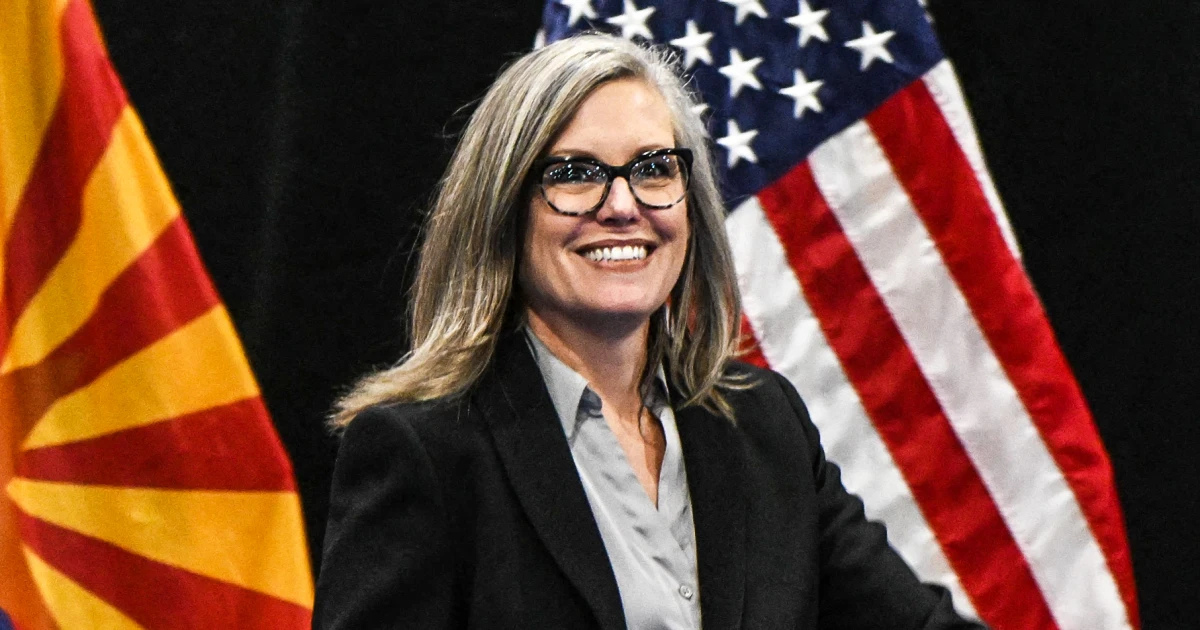A changing tide is brewing in the cryptocurrency world as the Arizona Crypto Reserve Bill ushers in progressive legislation on how it would handle digital assets. However, currently, two bills moving through the state legislature would be a major shift to embrace the use of blockchain technology as an integral part of the state’s financial strategy. They are groundbreaking proposals, and there is much to know about them and what they might mean.
Key-Takeaways:
- If passed, SB 1373 would set up a Digital Assets Strategic Reserve Fund from seized cryptocurrencies that the state treasurer could invest up to 10% of in digital currencies each year.
- There is a companion bill to that, SB 1025, which is focused on Bitcoin investments and directs the treasury and retirement systems of Arizona to be able to put a limited amount — the limit is 10 percent of available funds — into Bitcoin itself.
- Governor Katie Hobbs has vowed to veto all legislation until disability funding is addressed, and both bills could be vetoed by her.
- Arizona’s initiatives are among a wave of such cryptocurrency legislation advancing in states like Texas and New Hampshire.
Understanding SB 1373: The Strategic Digital Assets Reserve Bill
 Arizona Crypto Reserve Bill revealed to have cleared a major legislative hurdle: Arizona’s Senate Bill 1373, which is also referred to as the Strategic Digital Assets Reserve Bill, was recently cleared. The bill cleared the House Committee of the Whole and is being sent to a final vote that could send it to the governor’s desk. Among other things, this legislation establishes a special account to handle cryptocurrencies that are recovered during criminal proceedings.
Arizona Crypto Reserve Bill revealed to have cleared a major legislative hurdle: Arizona’s Senate Bill 1373, which is also referred to as the Strategic Digital Assets Reserve Bill, was recently cleared. The bill cleared the House Committee of the Whole and is being sent to a final vote that could send it to the governor’s desk. Among other things, this legislation establishes a special account to handle cryptocurrencies that are recovered during criminal proceedings.
Taken together, this would create a newly formed Digital Assets Strategic Reserve Fund that would be overseen by the state treasurer. Mostly, the fund would comprise of criminal investigations seized and forfeited digital assets. It is an innovative approach for how to treat confiscated cryptocurrency as opposed to simply liquidating those assets immediately.
It would empower the treasurer to put no more than 10% of the collective assets of the fund into digital currencies in every fiscal year. Moreover, the treasurer could make fund loaned assets if the action didn’t increase the measurement of financial risk. This fiduciary responsibility is balanced between innovation and fiscal responsibility.
SB 1025: The Arizona Strategic Bitcoin Reserve Act
 Other legislation being drawn up by lawmakers is Senate Bill 1025 in particular, which will regulate Bitcoin investments. It is known as the Arizona Strategic Bitcoin Reserve Act, which would allow them to invest a maximum of 10 percent of the funds they can gather into Bitcoin.
Other legislation being drawn up by lawmakers is Senate Bill 1025 in particular, which will regulate Bitcoin investments. It is known as the Arizona Strategic Bitcoin Reserve Act, which would allow them to invest a maximum of 10 percent of the funds they can gather into Bitcoin.
Just like its companion bill in the House, SB 1025 has already passed the House Committee of the Whole but now awaits a floor vote. As indicated by this Bitcoin-specific approach, Bitcoin is increasingly being seen as a distinctive asset class that should be considered separately when investing.
Part of a Growing National Trend
 While Arizona is one of many states that have considered integrating cryptocurrency into state finances, there are others. Several states around the country are doing the same thing, with different focuses and different draws in their progress. Current bitcoin legislation, which Utah has recently passed, stripped provisions for a bitcoin reserve.
While Arizona is one of many states that have considered integrating cryptocurrency into state finances, there are others. Several states around the country are doing the same thing, with different focuses and different draws in their progress. Current bitcoin legislation, which Utah has recently passed, stripped provisions for a bitcoin reserve.
Texas, meanwhile, has already gotten its Senate on board with Bitcoin reserve legislation, while New Hampshire has itself advanced similar legislation through the House. This national movement demonstrates that interest in the use of digital assets is growing in state financial strategies no matter the level of legislative support.
Potential Roadblocks Ahead
 But they’re far from law; in fact, they already face significant challenges before reaching their desks. Governor Katie Hobbs had promised to veto every bill until she and the legislature came to terms on disability funding. It’s notable she’s had a record of rejections of legislation in her recent past, as she most recently rejected lots of legislation — all 15 that were vetoed in a week.
But they’re far from law; in fact, they already face significant challenges before reaching their desks. Governor Katie Hobbs had promised to veto every bill until she and the legislature came to terms on disability funding. It’s notable she’s had a record of rejections of legislation in her recent past, as she most recently rejected lots of legislation — all 15 that were vetoed in a week.
No matter how well subscribed cryptocurrency bills may be, their popularity begets nothing but uncertainty for either since this executive stance has been set. Whether Arizona joins the ranks of the states officially supporting digital asset investments will depend on the governor’s priorities.
Conclusion: Arizona Crypto Reserve Bill
The Arizona Crypto Reserve Bill states that state-level cryptocurrency adoption is gaining growing momentum that will continue regardless. These developments provide important steps towards the mainstream adoption of cryptocurrency and regulation for those who are interested in cryptocurrency adoption and regulation. While these specific bills do or do not pass, they are important markers of how far digital asset policy has reached.










